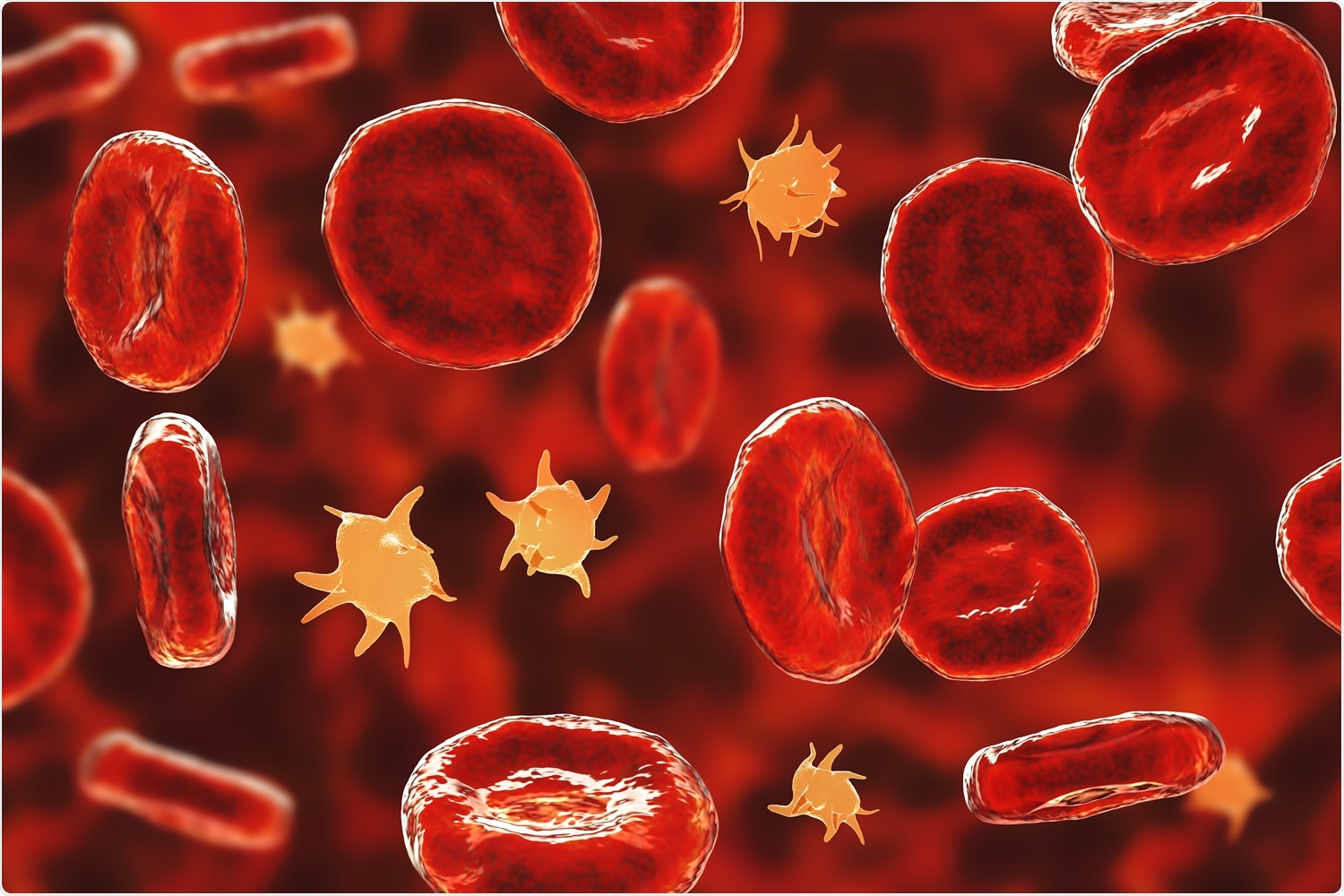Home » Health News »
Thrombosis with thrombocytopenia syndrome rare but serious adverse event associated with Ad26.COV2.S vaccination
A recent study conducted in the United States has revealed that thrombosis with thrombocytopenia syndrome following adenoviral vector-based coronavirus disease 2019 (COVID-19) vaccination is a rare event. However, the condition can cause serious consequences once developed, including hospitalization, intensive care unit (ICU) admission, or even death. The study is currently available on the medRxiv* preprint server while awaiting peer review.

Background
Among currently available COVID-19 vaccines, two are based on adenoviral vectors (ChAdOx1 nCoV-19 by Oxford/AstraZeneca and Ad26.COV2.S by Janssen/Johnson & Johnson). A few cases of thrombosis and thrombocytopenia have been observed among vaccine recipients after these vaccines were rolled out. Because of this adversity, some European countries and the US have paused the administration of these vaccines and considered mRNA-based COVID-19 vaccines for mass immunization.
In the US, the prevalence of thrombosis with thrombocytopenia syndrome has been 13 – 39 cases per million vaccine doses administered. The syndrome shares some characteristics of autoimmune heparin-induced thrombocytopenia. According to available literature, the production of anti-platelet factor 4 (PF4) antibodies by adenoviral DNA or adenoviral vector-induced splice variants of SARS-CoV-2 spike protein is the main causative factor for thrombosis with thrombocytopenia syndrome. These antibodies trigger the development of thrombosis by activating platelets.
In the current study, the scientists have thoroughly investigated the prevalence of thrombosis with thrombocytopenia syndrome after COVID-19 vaccination in the US. Moreover, they have evaluated the clinical consequences associated with the syndrome.
Study design
The scientists collected case reports of thrombosis and thrombocytopenia after COVID-19 vaccination from The Vaccine Adverse Events Reporting System, a surveillance system for reporting vaccine-related adversities in the US. They primarily focused on cases reported between December 14, 2020, and August 31, 2021.
Important observations
Patients with thrombosis in an unusual location (cerebral vein, visceral artery or vein, extremity artery, central artery or vein), or in an extremity vein or pulmonary artery, along with new-onset thrombopenia after vaccination were considered to have thrombosis with thrombocytopenia syndrome.
Based on this definition, a total of 52 cases were identified to have thrombosis with thrombocytopenia syndrome. Of these cases, 50 developed the syndrome after adenoviral vector-based vaccination (Ad26.COV2.S; Janssen/Johnson & Johnson), and 2 developed after mRNA-based vaccination (Moderna COVID-19 vaccine).
Considering the administration of 14 million doses of adenoviral vector-based vaccine and 351 million doses of mRNA-based vaccine, the prevalence of thrombosis with thrombocytopenia syndrome was estimated to be 3.55 per million Ad26.COV2.S doses and 0.0057 per million mRNA vaccine doses.
Thrombosis with thrombocytopenia syndrome after adenoviral vector-based vaccination
The most common location of thrombosis was cerebral venous sinuses, which was observed in 54% of cases. In about 98% of cases, venous thrombosis or thromboembolism was identified. Arterial thrombosis was identified in 16% of cases.
In most cases, thrombosis was treated with heparin. Other treatments used to manage thrombosis with thrombocytopenia syndrome were non-heparin anticoagulants, intravenous immunoglobulin, corticosteroids, platelet transfusion, and plasmapheresis. In 40% of cases, surgery or radiologic treatment was performed.
All 50 patients with Ad26.COV2.S-induced thrombosis with thrombocytopenia syndrome were admitted to the hospital. Of them, 64% were admitted to the ICU, and 12% died eventually.
Clinical presentation of thrombosis with thrombopenia syndrome
The most commonly identified initial symptom was a headache, and the average duration of symptom onset was 10 days after vaccination. The majority of patients with headaches had cerebral venous sinus thrombosis.
The patients who stayed in the hospital for more than 20 days and those admitted to the ICU had significantly lower platelet counts compared to other hospitalized patients. Thrombocytopenia was observed in all hospitalized patients. In 84% of patients, anti-PF4 antibodies were detected.
Thrombosis with thrombocytopenia syndrome after mRNA-based vaccination
Only two cases with thrombosis with thrombocytopenia syndrome were identified after mRNA vaccination. Both patients had cerebral venous sinus thrombosis, with one having deep vein thrombosis and pulmonary emboli.
The symptoms appeared 2 and 11 days after vaccination. Anti-PF4 antibodies were present in both patients. Death occurred in one patient during hospitalization.
Study significance
The study reveals that thrombosis with thrombocytopenia syndrome is relatively rare after adenoviral vector-based COVID-19 vaccination. However, people who develop the syndrome can experience severe consequences, including hospitalization, ICU admission, or even death.
As mentioned by the scientists, more studies are required for the risk-benefit assessment of COVID-19 vaccination.
*Important Notice
medRxiv publishes preliminary scientific reports that are not peer-reviewed and, therefore, should not be regarded as conclusive, guide clinical practice/health-related behavior, or treated as established information.
- See I. 2021. Case Series of Thrombosis with Thrombocytopenia Syndrome following COVID-19 vaccination–United States, December 2020-August 2021, medRxiv, https://www.medrxiv.org/content/10.1101/2021.11.10.21266063v1
Posted in: Medical Research News | Medical Condition News | Disease/Infection News | Pharmaceutical News
Tags: Antibodies, Coronavirus, Coronavirus Disease COVID-19, Deep Vein Thrombosis, DNA, Headache, Heparin, Hospital, Immunization, Immunoglobulin, Intensive Care, Plasmapheresis, Platelet, Platelets, Protein, Pulmonary Artery, SARS, SARS-CoV-2, Spike Protein, Surgery, Syndrome, Thrombocytopenia, Thromboembolism, Thrombosis, Vaccine

Written by
Dr. Sanchari Sinha Dutta
Dr. Sanchari Sinha Dutta is a science communicator who believes in spreading the power of science in every corner of the world. She has a Bachelor of Science (B.Sc.) degree and a Master's of Science (M.Sc.) in biology and human physiology. Following her Master's degree, Sanchari went on to study a Ph.D. in human physiology. She has authored more than 10 original research articles, all of which have been published in world renowned international journals.
Source: Read Full Article


